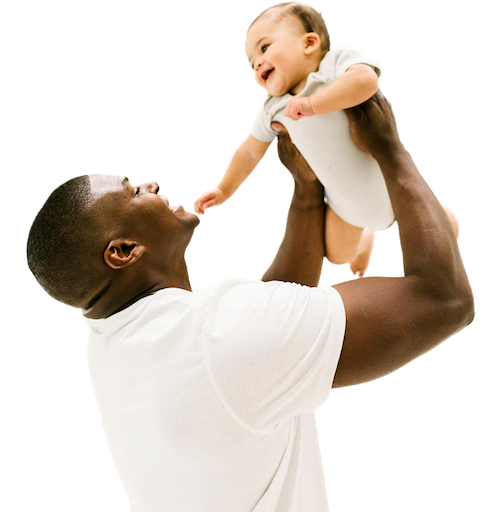When parents are trying to help their baby sleep, reflux can be a topic of concern.
Why? Because when parents see their babies struggle with sleep, they often wonder if a physical issue like reflux could be causing rough nights.
I’d love to give you an understanding of reflux, including signs of baby reflux at night, and some practical tips related to baby sleep. Even though I have twenty years of experience as a nurse, please know that this blog does not represent medical advice. Please talk with your doctor about this and all medical concerns.
Taking Cara Babies Classes
stars ( reviews)
We’ll always want to address physical concerns before focusing on sleep. Once your baby’s reflux pain is managed, my classes are here for you. I’ll teach you everything you need to know to lay a healthy sleep foundation to achieve great days and nights. All of my classes are customizable so you can adjust your plan to fit your specific circumstances, including reflux.
Choose your child’s age to get started:
What is reflux?anchor
In short, reflux means that the stomach contents are being pushed into the esophagus. For most babies, this is not associated with pain; for some, there is pain involved.
If you’re concerned about how often or how much “spit-up” or refluxed milk you’re seeing, make sure to check out this video.
Here’s a bit deeper explanation:anchor
Our stomachs are full of the food we eat and digestive acids. A little muscle at the top of the stomach (the esophageal sphincter) holds everything in place. However, that muscle is still developing for babies. So, because that muscle is immature, the contents from the stomach can be pushed up into the esophagus. For most babies, there is no reason for concern. These babies are sometimes referred to as “Happy Spitters.”
However, for some babies, the acid from the stomach can cause pain in the esophagus. This is called Gastroesophageal reflux disease (GERD). Babies with GERD need to be seen by a doctor for the appropriate diagnosis and support.
What are signs of painful or concerning reflux in babies?anchor
spitting up and vomiting associated with pain
difficulty being soothed/constant crying
becoming fussy following feedings
arching away from the nipple during feedings
frequent coughing or congestion in the absence of illness
wheezing or trouble breathing
irritability during feedings
refusal to eat
poor weight gain
difficult and disrupted sleep
When do doctors get concerned about baby reflux symptoms?anchor
It’s estimated that over half of all babies spit up and show signs of reflux(1).
Remember, some reflux-type symptoms can be normal. All babies are born with an immature esophageal sphincter. Eventually, that muscle will get stronger and will only open when a baby swallows. It will remain tightly closed at other times, keeping everything in the stomach where it belongs.
Not all babies who show reflux symptoms need treatment. Doctors get concerned when babies begin to suffer from severe pain, have trouble gaining weight, show blood in their stool, refuse to eat, or begin to experience respiratory issues. It’s so important for everyone to work together (parents and physicians) to determine if reflux pain is truly impacting the baby. However, if you feel like you see pain and your concerns are not being heard, please consider a second opinion: reach out to another doctor or a pediatric gastroenterologist to explore your concerns further.
How do I help my baby with reflux sleep?anchor
1) Feed your baby in an upright position. Keep their head higher than their stomach.
Why? Gravity can assist milk down the esophagus.
2) Hold your baby upright for 20-30 minutes after each feeding.
Why? Gravity can help keep milk down in the stomach until it begins to digest.
3) Talk to your doctor about a good probiotic. (Example: Gerber Soothe).
Why? Research(2) indicates that administering the probiotic Lactobacillus reuteri results in much shorter crying episodes (particularly in breastfed babies) (3,4,5) less spitting up, and less constipation.
4) Burp after every 2-3 ounces or when you switch breasts.
Why? Burping decreases the chance for an air bubble to cause spitting up.
5) Offer a pacifier.
Why? Sucking can ease the pain by increasing saliva and downward contractions of the esophagus.
Should I start an elimination diet or change my baby’s formula?anchor
This can help, but please discuss any dietary changes for you or your baby with your doctor/pediatrician first.
Cow’s milk can increase painful reflux symptoms for many babies dealing with GERD. (Check labels for casein, the milk protein.) Soy can also be a culprit. Again, each baby can have unique sensitivities, so please work closely with your doctor before making any big dietary changes.
What about medication?anchor
Some babies with reflux need medication. If your baby does need treatment, you will need to work closely with your pediatrician/pediatric GI specialist to find the correct medication and dosage for your baby. If you are not seeing improvement, please keep in constant communication with the doctor. Finding the correct medication and dosage for your baby may take time.
Remember: As your baby grows, the dosage may need to be adjusted.
What should I do if my baby spits up while sleeping?anchor
I know this can be alarming for parents of babies with reflux. Try not to panic. You typically do not need to intervene if your baby spits up while sleeping. A baby’s anatomy is designed to protect against choking from reflux or spit up. If your baby wakes because they are wet or experiencing some other discomfort, it’s okay to provide the support they need.
Should my baby sleep on their back? Will they choke if they spit up?anchor
All babies should be placed to sleep on their back, even babies with reflux.* This position does NOT increase the risk of choking. It is, indeed, safe.
The AAP(6) says this: “Sleep position does not increase the risk of choking and aspiration in infants, even those with gastroesophageal reflux because infants have airway anatomy and mechanisms that protect against aspiration.”
This video will help you understand why it IS safe for a baby (even one with reflux) to sleep on his or her back:
Photo by the National Institute of Child Health and Human Development
Notice that if the baby spits up while on her back, it drains into the esophagus which goes to the stomach instead of the lungs. As the picture demonstrates, the safer position is for a baby to lay on his back while sleeping- even with reflux.
*Once a baby can independently roll from back to belly, they have the muscle strength and neck control to lift their head and safely sleep on their tummy. (Be sure arms are out of the swaddle.)
What if my baby with reflux rolls to their tummy while sleeping?anchor
Most pediatricians agree that it’s safe to allow your baby to sleep on their tummy if they roll there independently. Why? If your baby can independently roll from back to belly, they have the muscle strength and neck control to lift their head.
Be sure your baby is not swaddled if they’re rolling or showing signs of rolling.
If your concern is specifically about the safety of tummy sleep for a baby who spits up or has reflux, I understand. Allow this to set your mind at ease: By the time your baby can roll independently, their neck and trunk muscles are stronger, the esophagus is longer, and the esophageal sphincter is more mature.
Should my baby sleep with their head elevated? Do crib wedges help reflux?anchor
The American Academy of Pediatrics does not recommend elevating a baby’s head for sleep. The AAP reports(6) that “elevating the head of the infant’s crib is not effective in reducing reflux. It may result in the infant sliding to the foot of the crib into a position that may compromise respiration and therefore is not recommended.”
The use of a crib wedge or any other product designed to position a baby in the crib simply isn’t safe or effective for helping reflux.
When I hold my baby upright after feedings, they fall asleep. How can my baby learn to fall asleep independently?anchor
We know that a baby falling asleep independently is so helpful in learning to sleep through the night.
Here are some tips to keep a baby awake while being held upright after daytime feedings:
Turn your baby away from you and walk around the house, look in the mirror, or show them toys.
Babywear with baby in an upright position (turned outward when age appropriate).
Use an exersaucer or baby jumper (when age appropriate).
Prop your baby up on your legs with your knees elevated and talk to them.
At bedtime, offer a feeding before bath time. Many bathtubs naturally hold a baby in an upright position, so it serves as a great activity to break up feeding and sleep while still maintaining the position necessary to decrease reflux concerns.
For night feedings, your little one will, most likely, fall asleep while being held upright. This is okay and to be expected.
*Please Note: Certain positions, such as in a swing or car seat, can cause pressure on the stomach and make reflux symptoms worse. Try to avoid car seats and swings for 20-30 minutes after a feeding.
Will Taking Cara Babies work for a baby with reflux?anchor
They can! However, babies in pain will continue to struggle with sleep. We will always want to address any physical concerns before focusing on sleep. I’m here for you when you’re ready.
My First Five Months Bundle (0-4 Months) will teach you how to calm your fussy baby, read your baby’s cues, set your days up for success, and get longer stretches of sleep. This is not formal sleep training, rather strategies to lay a healthy sleep foundation. I want to give you the confidence you need to navigate life with your newborn so that you can truly love the newborn stage.
My 5-24 Month Collection is a step-by-step plan that allows you to remain emotionally connected to your little one while helping them learn the skills needed to sleep independently for nights and naps. I’ll give you the tools you need to handle all of the bumps along the way like illness, regressions, transitions, and more with confidence.
If you already own a course or are purchasing a course, you can always add a phone consultation for one-on-one support. You get to speak with one of the certified sleep consultants on my team who will get to know you and your child and make recommendations based on your unique situation.
Having a baby with reflux is challenging. Although my classes cannot take away the pain of reflux, they are all customizable so you can adjust your plan to fit your specific circumstances, including reflux. When reflux is well-managed, Taking Cara Babies is here to help you and your family thrive. Work closely with your doctor, and remember...you can do this.
References
6 Sources
Winter, S. (2023). Patient education: Acid reflux (gastroesophageal reflux) in babies (Beyond the Basics
Indiro et al. (2011). Prophylactic Use of a Probiotic in the Prevention of Colic, Regurgitation, and Functional Constipation
Karkhaneh et al. (2020). Effectiveness of probiotics in infantile colic: A rapid review
Koonce et al. (2011). Colicky baby? Here’s a surprising remedy
Chau et al. (2015). Probiotics for Infantile Colic: A Randomized, Double-Blind, Placebo-Controlled Trial Investigating Lactobacillus reuteri DSM 17938
Feldman-Winter et al. (2016). SIDS and Other Sleep-Related Infant Deaths: Updated 2016 Recommendations for a Safe Infant Sleeping Environment
Keep in mind that the information and content on this blog is for informational purposes and should not be considered medical advice. If you have questions about your child, please reach out to your doctor.








